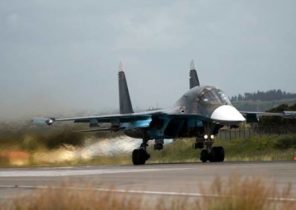In July, China again threatened the whip and the carrot to tempt
Last month, the diplomats of the countries of the region for the first time used a new platform for the implementation of ties: July 16, in a videoconference hosted a meeting of foreign Ministers of the five Central Asian countries with their Chinese counterpart.
In his welcoming speech, foreign Minister Wang Yi underscored how the high importance his country attached to cooperation with the region: “China has always believed that Central Asia occupies an important strategic position on contemporary international arena,” he said, thanking the country for “statements and assistance with issues of particular importance for China,” such as the seizure of Hong Kong and camps in Xinjiang.
The foreign Minister of China also said that the world is undergoing “a big change, unseen for a century”. This phrase often repeats his boss, the President of China, XI Jinping, after the start of a trade war between the US and China in 2018. Van And promised to step up the provision of humanitarian medical assistance and cooperation in the areas of trade and security.
But all the more worried it is the latter field. The meeting was held soon after bloody border clashes between India and China, which killed at least 20 Indian soldiers. Behind the clash was followed by the nomination of a new China claims part of the territory of Bhutan.
So when van And stated that he welcomes the progress towards a “successful solution left history of border problems and turning the common border into a symbol of friendship and cooperation,” he reassured his counterparts in neighbouring China, Kazakhstan, Kyrgyzstan and Tajikistan.
But just a few days after Chinese media published an article which asserted that the Tajik Pamir historically belongs to China and must be returned. Although the article was written by a historian and a nationalist, it seems, was not a veiled allusion on the part of the Communist party, she brushed Dushanbe for a living. Tajik officials are constantly worried about the Pamirs, where only the weak have power over the local population.
In General, the concern regarding the intentions of China has deep roots in all the States of Central Asia, where the smallest reason to ignite fears that obtained after the collapse of the USSR, the independence will not last long and that the peoples of the region only swapped one Imperial master for another. In 2011, Tajikistan ceded to China more than 1,000 square kilometers in the Pamirs in exchange for forgiveness of some unnamed debt. Five years later, Tajikistan has offered China to open in the Tajik Pamir military base. More than half of Tajikistan’s external debt is owed to China.
After the article hit the Tajik media, the first Deputy Minister of foreign Affairs of Tajikistan Nosiri husrav July 22, phoned China’s Ambassador to Dushanbe Liu Binom to complain about this, which is unusual. According to him, Beijing needs to censor such “biased” interpretations of history. In the message the Chinese Embassy about this interview article was not mentioned, but since then it has disappeared from major Chinese platforms such as Baidu.
Meeting of Ministers of foreign Affairs also took place against the background grumbling Nur-Sultan in the address of the Embassy of China for undiplomatic warning that in Kazakhstan, blazing a deadly “unknown pneumonia” (the news even briefly hit the world media). The outbreak of “pneumonia”, most likely, was the epidemic of the coronavirus speeding through Central Asia like a forest fire, while the government confuse the statistics to save face. The statement of the Chinese Embassy made Nur-Sultan to recognize that the scale of the epidemic in the country is much more serious than previously admitted.
Infrastructure
Central Asia’s largest project development of wind elektoenergii expanding. Ganaraska wind power station (GWE) in the Zhambyl region of Kazakhstan — a joint venture between Chinese state owned company China Power and Visor Investment firm with headquarters in Atlanta, has chosen the company Xinjiang Goldwind Science & Technology as a contractor to build the second phase of turbines and generators. IVA was launched last year, its capacity is 100 MW, and the construction cost amounted to 136,2 million dollars. The China-led Asian Bank of infrastructure investments, which will lend the project is 46.7 million dollars, says the plant will allow to save annually about 110 thousand tons of coal. By the way, in 2018 Goldwind Science & Technology has built two wind parks in the Almaty region.
1 July, owned by Chinese state Corporation China National Chemical Engineering Group plant for the production of plastics, with a cost of $ 2.6 billion in Kazakhstan’s Atyrau delivered three 500-ton propane tanks, the company said, adding that measures have been taken to ensure social distancing to deliver the tank does not come into contact with the factory workers. In the spring the workers were forbidden to leave the limits of the object. It is expected that production at the facility will begin by the end of the year.
July 26, Chinese state company Power China has completed repairs and spent preparemenu tested for Shahrikhon HPP in the Uzbek part of the Ferghana valley. The project was funded by a loan of 63 million dollars provided by Beijing to Tashkent in July 2018, reports news Agency “Xinhua”.
5 Jul subsidiary of Chinese state oil company CNPC announced that after a 14 day quarantine, nine Chinese experts returned to Navoi to oversee the work of the only in Uzbekistan of a plant for the production of PVC. The construction belonging to the government of Uzbekistan plant that started operating at the end of last year, at a cost of 430 million dollars.
On 27 July, the Prime Minister of Tajikistan qohir rasulzoda visited the facilities of Chinese Zijin Mining Group in Zarafshan, the company said. Rasulzoda commended the efforts of the company, continuing the work during a pandemic, and promised to ease any administrative problems that it may face. Owned by the Chinese government Zijin Mining Group acquired a 75 percent stake in the mine in Zarafshan, providing 75 percent of the total production of gold in Tajikistan.
Gas
Purchases by China gas in Kazakhstan, Turkmenistan and Uzbekistan has declined significantly due to the caused by a coronavirus economic downturn. July 30, news Agency “Xinhua” reported that, according to statistics from CNPC, the import of natural gas from these three countries in the first half of 2020 amounted to 19 billion cubic meters, which is 17 percent less compared to the same period last year. In 2019 China bought from these three countries account for 47.9 billion cubic meters, but at what price, is unknown.
Although China began to buy less gas, it continues to help with the launch of production at new fields to meet domestic needs.
After earlier this year the Washington-based Corporation Epsilon Development Corporation showed that fracking and horizontal drilling can make the production from the well “Talimarjan-12” in Kashkadarya region of Uzbekistan to be commercially viable, Tashkent appealed to China for support. At the end of July the Embassy of Uzbekistan in Beijing held talks regarding the gas transportation and processing with the two senior representatives of China’s energy sector — the Director of the National energy Commission of China Zhang Jianhua and Director of CNPC Li Fanrong.
In neighboring Turkmenistan, which continues to insist that the coronavirus walked by her side, despite reports of outbreaks across the country, employees of CNPC in Ashgabat and Lebap district to have isolated themselves after a number of other workers of the gas company reportedly found covid-19, writes the news Agency “Fergana”.
Cars
Chinese cars are gaining markets across the region. On 7 July, the Ministry of health of Uzbekistan additionally purchased 15 ambulances Foton in China, according to Podrobno.uz. In Namangan living abroad, the Uzbek businessman lured home under the project of government reform, opened a production line for the Assembly of small trucks under the Chinese brand Changan Automobile, says the same publication. Chinese bus manufacturer Yutong after the recent success in Kazakhstan has won another tender for the supply to Kyrgyzstan of 100 buses running on natural gas.
July 4, China’s state-owned JAC Motors has delivered 181 police car to the local office of the Ministry of internal Affairs in Karaganda, said the Ministry of Commerce of the PRC. It also completes Assembly of 300 new ambulances for health Ministry of Kazakhstan. In addition, from may 2019 JAC Motors and China national Corporation for import and export of machinery are holders of 51% of the shares of LLP “Saryarkaavtoprom”, the largest car manufacturer in Kazakhstan.
Humanitarian assistance
If someone could “eat” only Chinese press releases on the provision of humanitarian assistance to countries of Central Asia, he would be always full. The flow of humanitarian aid, is a public relations, especially in the capable hands of government propagandists.
For example, state Agency on statistics under the President of the Republic of Tajikistan on July 28 published a curious report on the country this year for humanitarian assistance. China has provided 46.9 percent provided the government assistance, followed by Uzbekistan with 17.4 percent, and then by a wide margin, Russia with 4% and US with 1.8%. But the Agency didn’t mention that talks about aid and not about their value. In the presented statistics do not include direct cash infusion to the state budget, which received hundreds of millions of dollars from international financial organizations, mainly from the West.
Uzbekistan received more than just humanitarian assistance, namely the special relationship Chinese state-owned pharmaceutical giant Sinopharm. During on 20 July a meeting with representatives of the Uzbek Embassy, the Corporation has proposed to conduct trials of a new vaccine covid-19 people in Uzbekistan, the Ministry of foreign Affairs of Uzbekistan. Sinopharm has also declared its readiness to invest in the Uzbek economy.
Yau Tsz Yan investigates China’s policy in Central Asia at the OSCE Academy in Bishkek.







